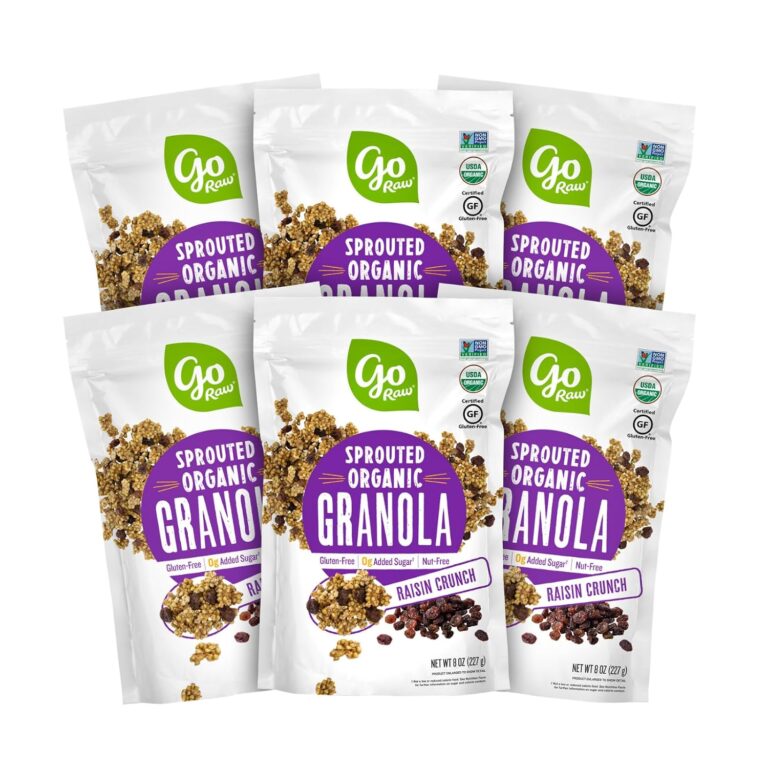The pictures in our articles might not always show exactly what the text is talking about. We use these images to make the article more interesting and eye-catching. They are there to add to the text, but not to replace it or show every detail.
Are you looking to add a new and nutritious protein source to your diet? Look no further than chicken hearts! These little known gems are packed with essential vitamins, minerals, and protein that offer a plethora of health benefits. In this article, we will explore 15 fascinating facts about chicken heart nutrition that will make you reconsider their place in your diet.
The Powerhouse of Nutrients
Chicken hearts are not just a tasty treat but also a nutritional powerhouse. They are brimming with protein, vitamins, and minerals that support muscle growth, energy levels, and overall health. With their low fat content and high protein profile, chicken hearts make a delicious and nutritious addition to any balanced diet.
High Protein Content
One of the standout features of chicken hearts is their high protein content. With around 20 grams of protein per 100-gram serving, chicken hearts are an excellent source of this essential nutrient. Protein plays a crucial role in muscle growth and repair, making chicken hearts a valuable addition to any diet.
Rich in Essential Vitamins
Chicken hearts are bursting with essential vitamins, including vitamin B12, vitamin A, and niacin. These vitamins are vital for maintaining overall health and supporting various bodily functions. Vitamin B12, in particular, is important for brain function and the production of red blood cells, making chicken hearts a nutritious choice.
Abundant in Iron
Iron is a key mineral that helps transport oxygen throughout the body. Chicken hearts are a great source of iron, which can help prevent iron deficiency anemia and support energy levels. By including chicken hearts in your diet, you can ensure that your body has an adequate supply of this essential mineral.
Low in Fat, High in Protein
If you are watching your fat intake, chicken hearts are a great option. They are a lean source of protein, containing very little fat. This makes them an ideal choice for those looking to enjoy a nutrient-dense meal without worrying about excessive fat content.
Good Source of Zinc and Minerals
In addition to iron, chicken hearts are rich in other essential minerals such as zinc, phosphorus, selenium, and copper. These minerals play a crucial role in various bodily functions, including immune function, cell growth, bone health, and antioxidant protection. By incorporating chicken hearts into your diet, you can ensure that your body receives a diverse range of nutrients.
Essential Amino Acids
Chicken hearts are a complete protein source, meaning they contain all the essential amino acids that our bodies need but cannot produce on their own. These amino acids are important for muscle building and repair, making chicken hearts a valuable addition to any diet focused on muscle health and recovery.
Low in Calories, High in Nutrients
For those watching their calorie intake, chicken hearts are a nutritious choice. They are relatively low in calories but still provide essential nutrients, making them a valuable addition to a balanced diet. By incorporating chicken hearts into your meals, you can enjoy a nutrient-dense protein source without exceeding your calorie limits.
Boosts Metabolism with Vitamin B6
Vitamin B6 is essential for brain development, red blood cell production, and energy metabolism. Chicken hearts are a good source of this important vitamin, which can help support a healthy metabolism and overall wellbeing. By including chicken hearts in your diet, you can ensure that your body receives an adequate supply of vitamin B6.
Excellent Source of Selenium
Selenium is a powerful antioxidant that helps protect our cells from damage caused by free radicals. Chicken hearts provide a good amount of selenium, supporting overall immune health and reducing inflammation. By incorporating selenium-rich foods like chicken hearts into your diet, you can support your body's antioxidant defenses and promote overall health.
Supports Heart Health
Despite their name, chicken hearts can actually be beneficial for heart health. They are low in saturated fat and high in nutrients like vitamins B12 and B6, which support cardiovascular health. By including chicken hearts in your diet, you can enjoy a tasty and nutritious food that supports your heart health.
Choline-Rich for Brain Function
Chicken hearts are a good source of choline, an important nutrient that plays a role in brain development, nerve function, and metabolism. By including choline-rich foods like chicken hearts in your diet, you can support brain health, nerve function, and overall metabolism.
Coenzyme Q10 for Cellular Energy
Coenzyme Q10 is an antioxidant that is important for the functioning of the mitochondria, the powerhouse of our cells. Chicken hearts contain coenzyme Q10, which supports cellular energy production and overall health. By incorporating coenzyme Q10-rich foods like chicken hearts into your diet, you can support your body's energy production and overall wellbeing.
Supports Muscle Health and Recovery
The high protein content in chicken hearts makes them an excellent choice for muscle health and recovery. The amino acids present in chicken hearts help in building and repairing muscle tissues after exercise, making them a valuable protein source for active individuals.
Conclusion
Chicken hearts are a versatile and nutrient-dense food that offer a wide range of health benefits. From their high protein content to their rich vitamin and mineral profile, chicken hearts are a valuable addition to any balanced diet. Whether you are looking to support muscle growth, energy levels, or overall health, chicken hearts can be a delicious and nutritious option for your meals.
Frequently Asked Questions
Q: Are chicken hearts a healthy food choice?
A: Yes, chicken hearts are a healthy food choice. They are low in calories and fat, yet rich in essential nutrients like protein, iron, and vitamins.
Q: How can chicken hearts benefit my health?
A: Chicken hearts provide several health benefits, including improved blood circulation, support for brain function, enhanced immune system, and maintenance of bone health.
Q: How should I cook chicken hearts?
A: Chicken hearts can be cooked in various ways, such as grilling, sautéing, or adding them to soups and stews. They can also be marinated for added flavor.
Q: Where can I buy chicken hearts?
A: Chicken hearts can usually be found in local butcher shops, specialty meat stores, or some supermarkets. They may also be available for purchase online.
Q: Can I freeze chicken hearts?
A: Yes, chicken hearts can be frozen. It is recommended to package them properly in airtight containers or freezer bags to maintain their quality.
Your Trusted Source for Nutritional Information
At our site, we are dedicated to providing you with accurate and engaging content that focuses on the nutritional benefits of various foods. Each fact on our site is contributed by real users like you, ensuring that you receive a diverse range of insights and information. Our team of editors meticulously reviews each submission to guarantee the highest standards of accuracy and reliability. You can trust in our commitment to quality and authenticity as you explore and learn about the nutritional benefits of foods like chicken hearts.






